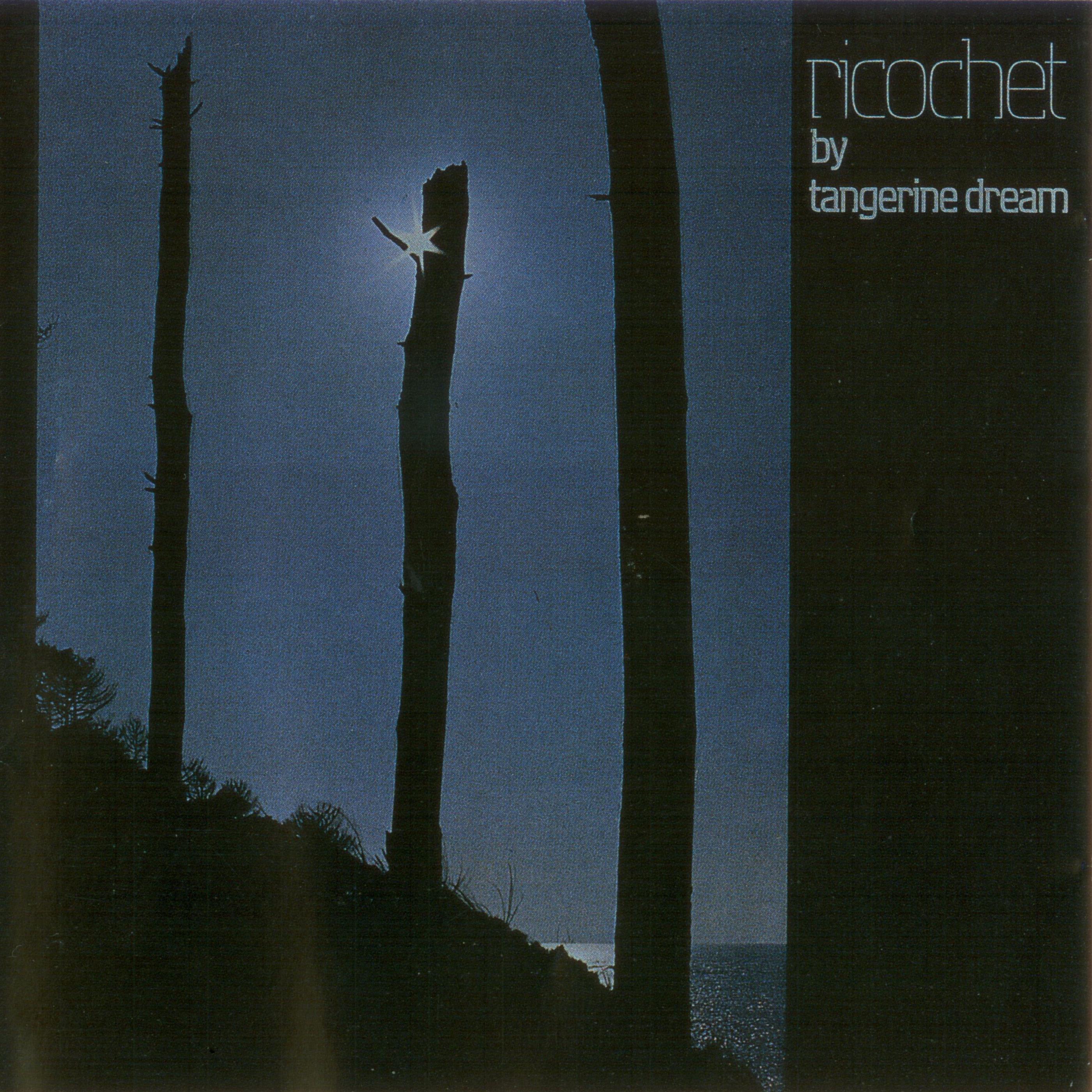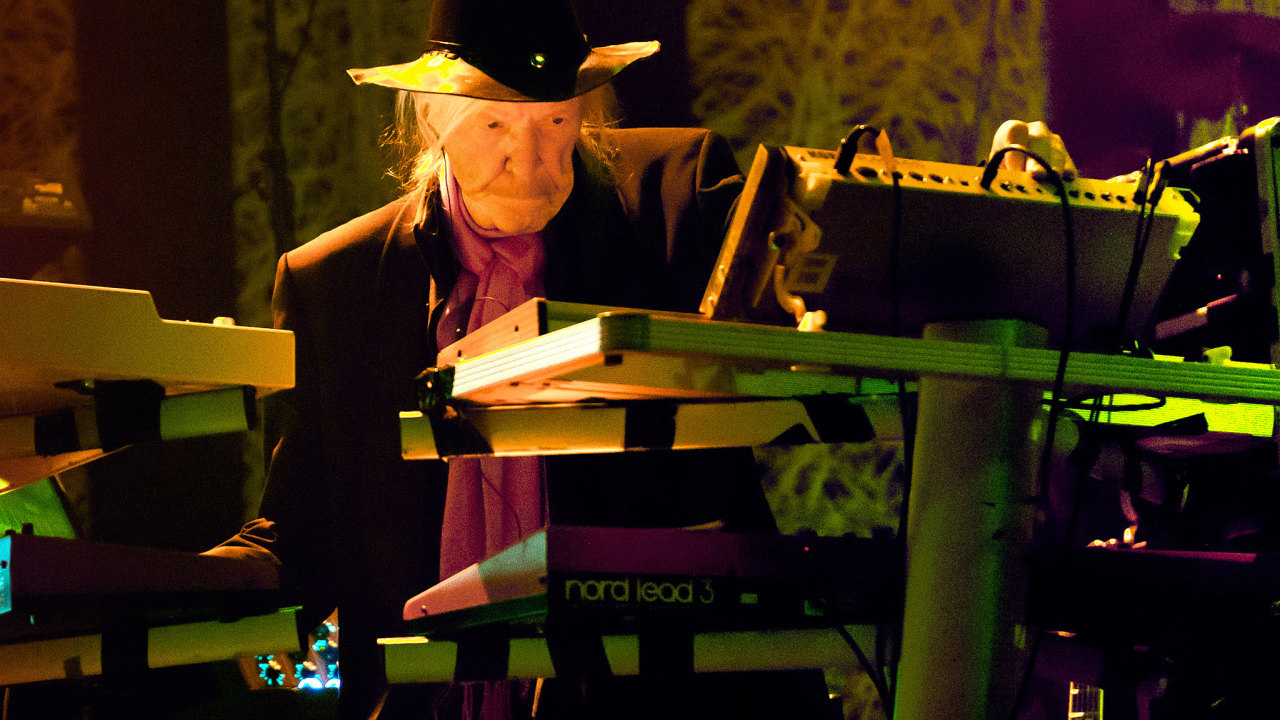On January 20th, Tangerine Dream founder Edgar Froese suddenly and unexpectedly passed away from the effects of a pulmonary embolism. He was 70.
Froese formed Tangerine Dream in Berlin in September 1967 with fellow students and the group were initially part of the radical, anti-pop scene centred on Berlin’s Zodiak Free Arts Lab. Their 1970 debut album Electronic Meditation reflected their early style which was improvised and often chaotic psychedelic rock. However, the band soon switched to much heavier reliance on synthesizers and garnered a modest cult following with albums such as Zeit and Atem.
Their first big break came when legendary DJ John Peel named Atem his Album of the Year in 1973. The exposure helped them bag a deal with the fledgling Virgin Records for a run of highly-successful releases which still define their legacy. Featuring the classic line-up of Peter Baumann, Chris Franke and the ever-present Froese, albums such as Phaedra (1974), Rubycon (1975) and Ricochet (1975) introduced their trademark sequencer-driven sound, the pulsing, rhythmic patterns which came to characterise the ‘Berlin School’ of electronic music.
After ten years of breaking new ground, the Tangerine Dream entered the ‘80s somewhat on the defensive. The electronic cutting edge was already passing to an unlikely alliance of New Romantics and post punks, and the synthetic symphonies of the previous decade were – to the media at least - starting to sound old hat. Rather than compete with this onslaught, however, TD simply retrenched and forged ahead.
Transitioning from the 1970s to the 1980s, their sound underwent some stark changes. The transformation begun with 1981’s Exit - shorter tracks, snappier melodies, drum machine a-go-go – coloured the rest of their career, with free-flowing improvisations replaced by increasingly chiseled and controlled sonic sketches.
Tangerine Dream never really recaptured the moody edge of their heyday, but under Froese’s unfaltering guidance, they remained prolific throughout the years, racking up a back catalogue of over 100 albums including dozens of movie soundtracks. And, of course, Froese’s vision has proven hugely influential across a wide spectrum of rock, pop, and dance artists, including the likes of Radiohead, Porcupine Tree, and Kasabian. I’ve even spoken to black metal bands who cited TD as an influence. In fact, I used to be in one. It’s safe to say that if I’d never discovered Tangerine Dream, I would not have set out on the long and winding path which led me into the ranks of Suffolk’s finest, Cradle Of Filth.

As with many fans back in the age of the vinyl LP, I often made buying choices based on the album’s artwork, and when I saw the sleeve of Tangerine Dream’s Ricochet, I just had to have it. It was quite unlike all the heavy metal albums I’d been buying up until that point and sure enough, the music contained within could hardly have been more different. This was 1987, and within a year I’d all but abandoned my aspiration to become a heavy metal axe-slinger and made the switch to synths. Had I not done this, I would have been in no position to answer the classified ad I saw in 1995 which read ‘Name band require keyboard player.’ The band in question turned out to be Cradle and the rest, as they say, is history. Cradle’s use of keyboards may be quite different from that of Tangerine Dream, but everything I wrote was in some way informed by Froese and Co. So, for personal reasons, I find the big man’s passing particularly sad.
I had the pleasure of interviewing Edgar in 2012 and told him how much his music meant to me and so many others. Regaling him with the title ‘Godfather of Electronica’, however, elicited an amused and slightly bemused response:
“I don’t know which box to put that one in!” he laughed. “The box of honour or the box of jokes! I really don’t know. But we’ve never been an electronic band. We are not electronic musicians; we were using electronic equipment to create something new within the community of progressive rock musicians.”
I had to admit to myself that by this point Edgar was looking frail, but the interview couldn’t have gone better and he left me with a profound thought. A notion that confirmed something I instinctively knew about his approach to music, and life:
“One thing you should know,” he intoned, “music can and will change human consciousness. It won’t change the hardened criminals who rule countries and their citizens, but I still feel close to the ideal of human development, to reach the community which realizes that building weapons and killing people – or even animals – is a kind of Stone Age evil which has to be overcome. It works against all of mankind. Whether you’re for it or against it, it will kill everybody sooner or later. Stone age consciousness… that’s what I would love to get out of. We are not billions of people, we are all one.”
The Godfather of Electronica may be gone, but in the words of Edgar himself: “There is no death; there is just a change of our cosmic address.”
